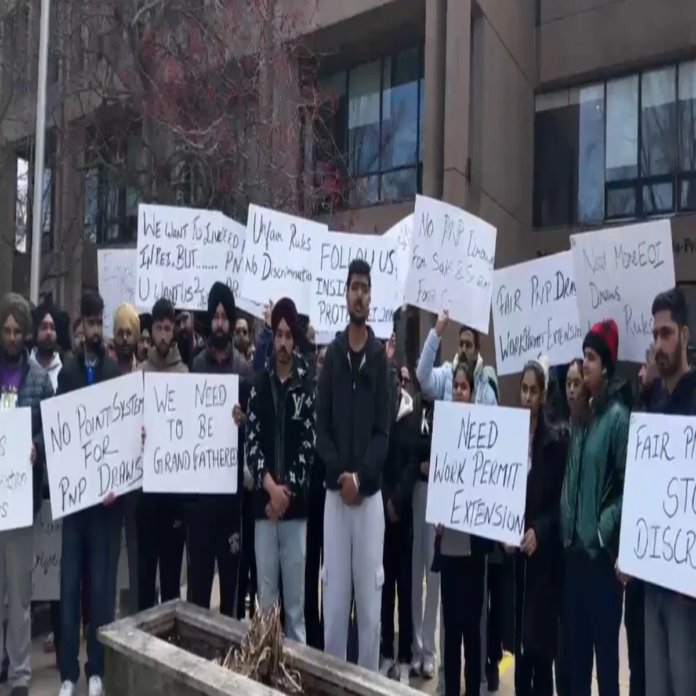Hundreds of Indian student graduates are protesting against new federal immigration policies in Canada that threaten their future in the country. The policy changes have sparked fear of deportation among more than 70,000 international student graduates, many of whom came to Canada in pursuit of better opportunities.
In Canada’s Prince Edward Island province, Indian students have been camping in front of the legislative assembly for over three months. Protests have also spread to other provinces, including Ontario, Manitoba, and British Columbia. The new policies aim to reduce the number of permanent residency nominations by 25% and impose stricter limits on study permits.
Canada has experienced rapid population growth in recent years, with immigration accounting for 97% of last year’s increase, according to federal data. This surge has put pressure on Prime Minister Justin Trudeau’s government to reduce the number of temporary residents, a move that is affecting thousands of students.
Student advocacy group Naujawan Support Network warns that these graduates risk deportation when their work permits expire at the end of the year. “I spent six crucial years of my life in Canada, studying and working, only to face this uncertainty,” says Mehakdeep Singh, a former international student who fears deportation.
Mr. Singh, like many other international students, spent his family’s life savings on tuition fees with hopes of securing permanent residency. However, with the new immigration policies in place, his future in Canada is at risk.
Amid a local housing and jobs crisis, Trudeau’s government is facing increasing pressure to address the temporary residency issue. The government has also begun scaling back its temporary foreign workers program, which was expanded in 2022 to address labor shortages. Employment and Social Development Canada (ESDC) recently criticized employers for over-relying on this program instead of hiring local talent.
Under the new rules, work permits will be denied in regions where the unemployment rate is 6% or higher, though sectors like agriculture, food processing, construction, and healthcare will be exempt. Trudeau emphasized that while Canada remains supportive of immigration, it is crucial to ensure that immigrants have clear pathways to success in the country.
The government has also pledged additional measures to reduce the temporary resident population to 5% of Canada’s total population within three years. Advocacy groups, including the International Sikh Student Organization, argue that the employment and housing issues are due to broader policy failures, not the migration of international students.



